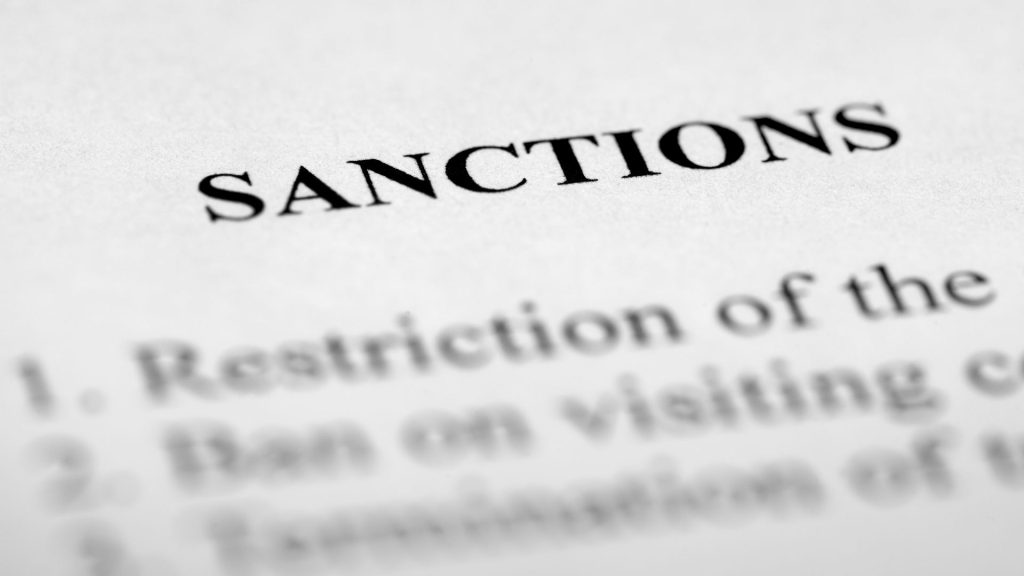Sanctions compliance plays a critical role in ensuring that businesses adhere to international laws and regulations, preventing potential legal ramifications and fostering trustworthy international relationships.
Let’s begin with the Office of Foreign Assets Control (OFAC), a division of the U.S. Department of the Treasury. The OFAC is tasked with enforcing economic and trade sanctions in accordance with U.S. foreign policy and national security goals. Their targets typically include foreign countries and regimes, terrorists, international narcotics traffickers, and individuals involved in activities related to the proliferation of weapons of mass destruction.
OFAC’s guidelines state that its regulations apply to all U.S. individuals and businesses, even those dealing with cryptocurrencies. These rules mean that transactions, including those using cryptocurrencies, with individuals or entities located in sanctioned countries are prohibited. Moreover, OFAC has begun to include cryptocurrency addresses associated with blacklisted individuals on its sanctions list, marking a significant move towards expanding its regulatory reach over the cryptocurrency realm.
However, the anonymous and borderless nature of cryptocurrencies creates opportunities for misuse, especially in the evasion of sanctions. Since blockchain technology operates internationally, it provides a potential loophole for sanctioned countries like Iran and North Korea to circumvent economic restrictions. The pseudonymous, or in some cases anonymous, nature of cryptocurrencies adds another layer of complexity, making it even more challenging for authorities to trace transactions.
The Sanctions Compliance
To illustrate this, let’s examine a case from 2018 when the U.S. Department of Justice indicted seven Russian individuals for various hacking and related influence operations. These individuals allegedly used bitcoin to fund the infrastructure employed in their hacking activities. This case clearly demonstrates the intricate and global nature of cryptocurrency-enabled crime, and the potential difficulties in tracking and prosecuting such actions.
In another instance from 2020, two Chinese nationals were charged for laundering over $100 million worth of cryptocurrency from a hack of a cryptocurrency exchange executed by North Korean actors. The accused were allegedly operating on behalf of North Korea, using cryptocurrencies to avoid sanctions and engage in illegal activities. This case underscores the complexity of such schemes, which often span multiple jurisdictions, making enforcement and prosecution a significant challenge.
The regulatory bodies, such as OFAC, are continually adapting and extending their oversight to include cryptocurrencies, issuing guidelines, and taking actions against those who exploit digital currencies for illegal activities. But these efforts are not without their challenges. The speed, global reach, and pseudonymous nature of cryptocurrency transactions make them an attractive tool for those seeking to evade sanctions, making regulatory oversight and enforcement a complex task.
This complexity underscores the importance of keeping abreast of the latest developments in this space. Whether you’re an entrepreneur venturing into a crypto-related business, an investor looking to diversify your portfolio with digital assets, or a technology enthusiast keen to understand the legal aspects of blockchain technology, being aware of the latest regulatory changes and understanding their implications is crucial.
While cryptocurrencies have brought about new avenues for innovation and changed the face of economic transactions, they have also presented novel challenges in sanctions enforcement and regulatory oversight. Nevertheless, the landscape is continually evolving, with regulatory bodies worldwide taking necessary steps to mitigate the potential risks associated with digital currencies.
Final Thoughts
The Office of Foreign Assets Control (OFAC) stands as a bulwark in the enforcement of U.S. economic and trade sanctions, ensuring alignment with the nation’s foreign policy and security objectives. With the digital era’s advent, cryptocurrencies have emerged as both a beacon of innovation and a potential chink in the armor of regulatory oversight. The borderless and often anonymous nature of these digital assets provides a fertile ground for malefactors seeking to sidestep sanctions or engage in illicit activities, evidenced by cases that span across continents and challenge conventional enforcement mechanisms.
Yet, as the dark side of cryptocurrency surfaces, so does the resolve of regulatory bodies like OFAC, striving to adapt and address these challenges. This tug-of-war between innovation and regulation in the cryptocurrency domain underscores a crucial reality: while digital currencies promise transformative potential, they also demand vigilance, awareness, and adaptability from stakeholders, ensuring their responsible and lawful use in a rapidly evolving landscape.





